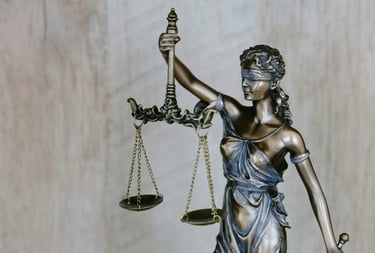SCOTUS Racial Double Standard: Opportunity vs. Punishment
The Supreme Court (SCOTUS) has made a stark statement about race in America — and it’s one that exposes a glaring double standard.
COURTSEDUCATIONIMMIGRATION


The Supreme Court (SCOTUS) has made a stark statement about race in America — and it’s one that exposes a glaring double standard. On one hand, the Court declares that considering race as a factor in a college applicant’s file is blatantly unconstitutional. On the other hand, it tacitly allows race to be used as a factor in detaining, deporting, and punishing people.
The message couldn’t be clearer: race cannot help you, but it can absolutely hurt you.
When Race Can’t Open Doors
Helping a student navigate systemic barriers to higher education? The Court says that’s unacceptable. Considering race as one factor among many in college admissions is deemed unconstitutional.
Think about that for a moment. A student’s background, their history, the barriers they face — all ignored. Race can’t be used to expand opportunity, to level the playing field, to give someone a fair shot at the American dream. The Court’s ruling treats this possibility as a legal violation.
This is more than a technicality. It’s a moral statement: in the eyes of the law, using race to help people get ahead is illegal, even if it corrects centuries of inequality.
When Race Can Slam Doors
Now consider the flip side. Using race to target people for detention, deportation, or punitive government action? Totally fine. Race can be used as a weapon to limit opportunity, restrict rights, or remove people from the country.
The contrast is jarring. Race is unacceptable when it might help someone succeed, but perfectly permissible when it might hurt someone. The law becomes a tool not of fairness, but of exclusion and control.
The Hypocrisy of “Colorblindness”
This double standard exposes the ugly truth about colorblind rhetoric. Claiming we “don’t see race” doesn’t mean fairness — it often means ignoring structural barriers when they might benefit someone, while wielding race as a weapon when it serves power.
Opportunity? Denied. Punishment? Encouraged. Equity? A fantasy. America’s legal system preaches neutrality while practicing selective prejudice, ensuring that race remains a tool of oppression rather than a tool of justice.
The Real-World Consequences
These legal contradictions are not abstract. They affect real people every day: young students barred from colleges, communities torn apart by deportations, families living under constant fear of government action.
The Court’s stance signals whose lives matter when opportunity is on the line — and whose lives only matter when punishment is at stake. Race can’t help a student thrive, but it can determine who gets punished.
Why This Matters
Until America confronts this hypocrisy, equality will remain conditional, and justice will remain selective. Opportunity should never be a crime. Race should never be a weapon.
True fairness means acknowledging history, addressing systemic inequities, and using every tool available to lift people up — not just to tear them down. Pretending that “colorblindness” is justice is a lie. It’s selective blindness, and it has devastating consequences.
America needs to decide whose lives matter in the eyes of the law — and stop pretending that fairness applies equally to all.
Photo By Tingey Injury Law Firm